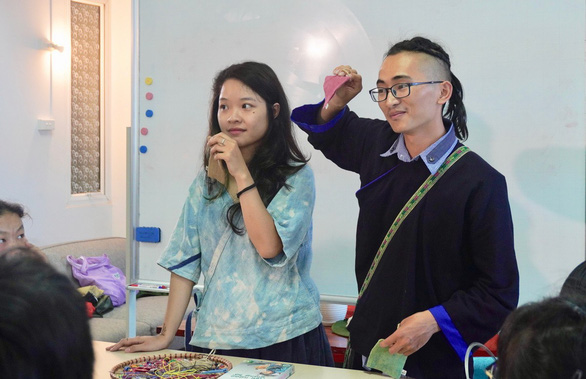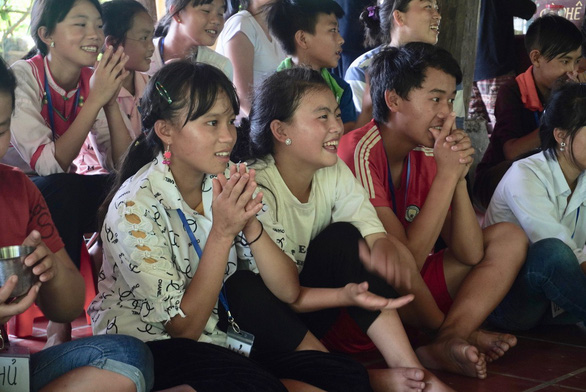A Vietnamese college student has spent this summer running a project aimed at helping ethnic children understand the importance of education.
Khang A Tua’s Vuon Mo project sought to expose ethnic children 12 to 15 years old in northwestern Vietnam to different opportunities and environments in order to demonstrate the important role education plays in rising from poverty.
Tua, 24, is himself an ethnic minority member from Mu Cang Chai District in the northern province of Yen Bai, as well as one of the very first batch of 54 students participating in the co-design curriculum at Fulbright University in Vietnam, a U.S. private nonprofit university.
Vuon Mo, funded by sponsors, holds summer camps for children aged 12 to 15 in order to offer them new experiences before they turn 16, the age Tua believes is a turning point in the lives of young adults.
“[At this age] the youngsters either enroll in high school and continue to develop academically or get married, have children, and spend their lives living in poverty,” Tua said, drawing on his own observations from growing up in such an environment.
Tua chose the name Vuon Mo, which means both “garden of apricots” and “garden of dreams” in Vietnamese, because of the values he hopes to instill in the project participants.
In a sense, children participating in the program are respected and listened to so that they can grow up just like apricot trees, slowly but able to succeed in harsh environments, he explained.
On the other hand, Tua hopes the children develop their own diverse dreams and become proactive in working toward attaining those goals after attending the summer camp.
“The word vuon [garden] represents diversity,” Tua said.
The Fulbright Vietnam student said working with ethnic minority children has been his dream since childhood, particularly as he witnessed many of his peers marrying at young ages.
|
|
| Participants in the Vuon Mo camp laugh during a presentation. Photo: V.M./ Tuoi Tre |
Another reason why Tua is determined to provide children of ethnic origin with opportunities to expand their horizons is because of his sister.
When she turned 16, Tua was unable to find any charity programs in his region which would help expose his little sister to opportunities aside from “becoming a child mother,” he said.
“Maybe it is because no one really cares about creating a diverse environment for ethnic children to develop as they would rather focus on providing material goods and money,” Tua said.
The man underlined that even though money is a necessity, it is impossible for one to rise above poverty without having dreams and goals to work toward.
At this year’s debut summer camp, participants met with successful role models who shared their backgrounds and explained how they themselves escaped poverty.
The participants also listened to a presentation on how the objects in their daily lives, like brocade and traditional musical instruments, are perceived in the world.
“This allowed the participants to have a better understanding of the paths that can be taken and that are closely attached to their culture and tradition,” Tua said.
The Vuon Mo project was supported by the Institute for Studies of Society, Economy and Environment (iSEE), Center for Community Empowerment (CECEM) and Live & Learn Environmental Education, among other organizations and individuals.
After the 2019 camp, the project intends to continue accompanying these children on their path to becoming independent and successful individuals.
Like us on Facebook or follow us on Twitter to get the latest news about Vietnam!





















































